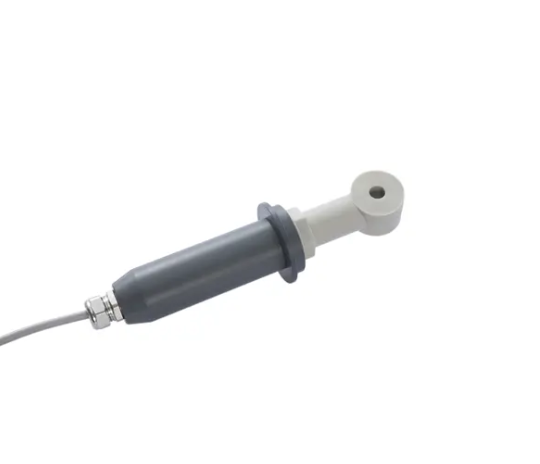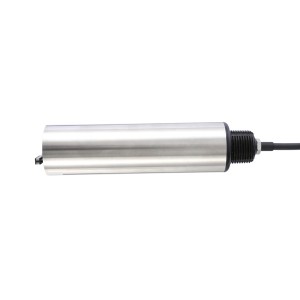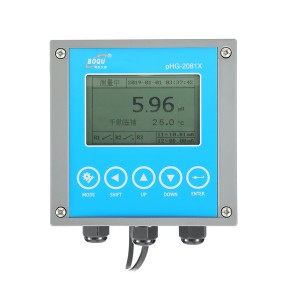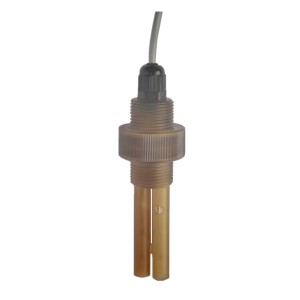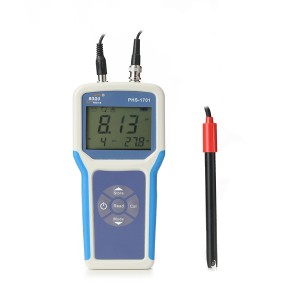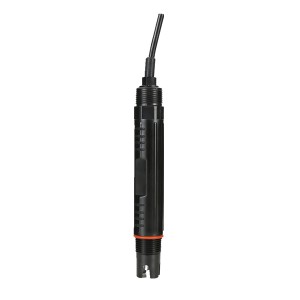Industries across the spectrum, including water treatment, chemical processing, pharmaceuticals, and food and beverage, have an inherent need for accurate and real-time measurement of the electrical conductivity of liquids. Precise conductivity readings are essential for ensuring product quality, optimizing processes, detecting contaminants, and maintaining regulatory compliance.
As industries continue to prioritize accuracy, versatility, and reliability in process monitoring, the adoption of toroidal conductivity sensors is expected to grow rapidly, further revolutionizing industrial efficiency in the years to come. The industrial and water quality monitoring sectors rely heavily on precise conductivity measurements. In recent years, the toroidal conductivity sensor from Shanghai Boqu Instrument Co., Ltd. has proven to be an optimal solution, guaranteeing improved accuracy and reliability. In this article, we aim to provide you with a deeper understanding of the characteristics, advantages, and usage of this cutting-edge sensor that is gaining traction among professionals across various industries.
I. Understanding the Toroidal Conductivity Sensor
1.1 What are Toroidal Conductivity Sensors?
Toroidal Conductivity Sensors are advanced instruments used to measure the electrical conductivity of liquids in industrial processes. They utilize a toroidal coil that surrounds the process fluid, eliminating direct contact with the liquid. This innovative design ensures exceptional durability, reduced maintenance, and consistent performance in harsh and corrosive environments.
1.2 How Does it Work?
The toroidal conductivity sensor operates on a unique principle, utilizing toroidal coils to measure the electrical conductivity of a solution. When immersed in a conductive medium, the sensor generates an electromagnetic field around the toroidal coils. The conductivity of the medium influences this magnetic field, leading to a change in inductance, which is directly proportional to the solution’s conductivity. By precisely measuring this inductance change, the sensor accurately determines the conductivity of the solution, ensuring highly accurate readings.
1.3 Key Components and Design
Shanghai Boqu Instrument Co., Ltd. has crafted the toroidal conductivity sensor with precision and durability in mind. The sensor’s design includes high-quality toroidal coils, a robust body made from corrosion-resistant materials, and advanced electronics for signal processing. The seamless integration of these components guarantees reliable and stable performance, even in harsh industrial environments.
II. Applications of the Toroidal Conductivity Sensor
2.1 Industrial Processes
In industrial settings, the toroidal conductivity sensor finds extensive use in monitoring and controlling various processes. Industries such as chemical manufacturing and pharmaceuticals benefit from its accurate readings. The sensor aids in optimizing process efficiency, ensuring product quality, and minimizing waste.
2.2 Environmental Monitoring
Water quality assessment is critical for safeguarding the environment and public health. The toroidal conductivity sensor excels in environmental monitoring applications, allowing researchers and environmental agencies to monitor the salinity and overall quality of natural water bodies accurately. It is an invaluable tool for understanding ecological changes and detecting potential pollution incidents.
2.3 Water Treatment Plants
Toroidal Conductivity Sensors have revolutionized water treatment plants by providing accurate and reliable monitoring of water quality. Municipalities and industries alike benefit from real-time data on conductivity levels, enabling them to maintain optimal chemical dosing and prevent issues like scaling and corrosion. This results in cost savings, extended equipment lifespan, and enhanced environmental compliance.
2.4 Food and Beverage Industry
In the food and beverage sector, maintaining precise control over liquid concentrations during production is crucial. Toroidal Conductivity Sensors have proven invaluable for monitoring various stages of beverage manufacturing, dairy processing, and liquid blending operations. By ensuring consistent conductivity values, these sensors help maintain product quality, minimize wastage, and comply with stringent hygiene standards.
III. Advantages of the Toroidal Conductivity Sensor
3.1 High Accuracy and Sensitivity
Compared to traditional conductivity sensors, the toroidal conductivity sensor offers superior accuracy and sensitivity. Its innovative design minimizes signal interference, resulting in precise and consistent measurements. The sensor can detect subtle changes in conductivity, making it ideal for applications where precision is paramount.
3.2 Low Maintenance and Longevity
Shanghai Boqu Instrument Co., Ltd. has engineered the toroidal conductivity sensor to require minimal maintenance. The robust construction and corrosion-resistant materials enhance the sensor’s longevity, reducing downtime and operational costs. This reliability ensures a continuous flow of data without frequent calibrations or replacements.
3.3 Wide Measurement Range
The toroidal conductivity sensor boasts a wide measurement range, accommodating various conductive solutions without compromising accuracy. This flexibility makes it a versatile tool for numerous applications, allowing users to measure both low and high-conductivity solutions with confidence.
Ⅳ. Trends Driving Adoption:
4.1 Industry 4.0 and Automation:
As industries increasingly embrace automation and the principles of Industry 4.0, there is a growing need for intelligent and digitally connected instrumentation. Toroidal conductivity sensors from Shanghai Boqu Instrument Co., Ltd., are designed with smart features that allow seamless integration with modern process control systems, facilitating real-time data analysis, remote monitoring, and automated process adjustments.
4.2 Sustainability and Environmental Concerns:
Industries worldwide are placing greater emphasis on sustainability and environmental stewardship. Toroidal conductivity sensors play a vital role in optimizing processes, minimizing waste, and ensuring compliance with environmental regulations. As a result, industries are actively adopting these sensors to enhance their eco-friendly initiatives.
4.3 Quality Control and Product Traceability:
Industries that rely heavily on precise conductivity measurements, such as pharmaceuticals and food and beverage, are increasingly incorporating toroidal conductivity sensors to maintain stringent quality control standards and provide accurate product traceability. This trend is driven by the need to ensure consumer safety, product consistency, and adherence to international quality norms.
Conclusion:
The toroidal conductivity sensor from Shanghai Boqu Instrument Co., Ltd. has emerged as a game-changer in the field of conductivity measurements. Its innovative design, high accuracy, and versatile applications have made it an indispensable tool across industries and environmental monitoring initiatives. As technology continues to advance, the toroidal conductivity sensor remains at the forefront, offering professionals an invaluable solution for precise and reliable measurements. Whether it’s optimizing industrial processes or safeguarding natural resources, this remarkable sensor continues to shape a more efficient and sustainable future.
Post time: Aug-10-2023

